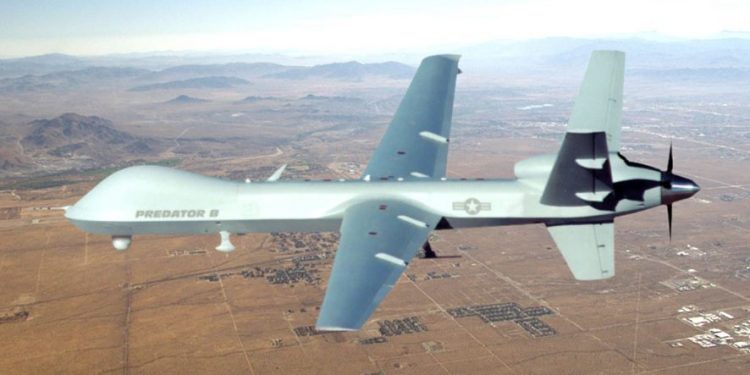New Delhi: A senior government functionary claimed Thursday that the average estimated cost of MQ-9B long endurance drones for India would be 27 per cent lower than the price incurred by other countries which have bought it from the US, asserting that it will most likely go further down during negotiations unless India seeks additional features.
He also categorically underlined that so far negotiations on the pricing issue have not begun as the latest official development towards the proposed acquisition of 31 of these drones has been the “acceptance of necessity” accorded by the Defence Acquisition Council, which happened June 15. The pricing issue is not part of this, he added.
The indicative cost of the drones made by the US government is $ 3,072 million.
This works out to be $ 99 million for each drone, he said, adding that it cost the UAE, one of the few countries to have it, $ 161 million a piece. The MQ-9B India is looking to acquire is comparable with the UAE’s but with a better configuration, he said.
Sixteen of these drones purchased by the US cost it $ 69 each but it was only a “green aircraft” without sensors, weapons and certification. Features like censors, weapons and payloads make up for 60-70 per cent of the total cost, he said, adding that even the US acquired five of them at $ 119 million each.
Due to the size of India’s deal and the fact that the manufacturer might have recovered a big part of its initial investment from earlier deals, the price for the country is working out to be less than others, he said, speaking on the condition of anonymity.
He, however, added that India may need to integrate some of its own radars and missiles with these drones, which may prompt a price revision.
The remarks came a day after the Congress demanded complete transparency in the multi-crore India-US drone deal, while alleging that the 31 MQ-9B predator drones were being procured at a higher price.
Sources said such a statement might have been made out of “ignorance”.
Reacting to reports that the Air Force had raised some questions about the drones, they said it is expected that all these wings of defence forces will make their points during consultation. However, the Air Force, the Army and the Navy have supported their acquisitions at all levels, they added.
India is looking to 15-20 per cent technological know-how as part of transfer of technology, and major components and subsystems, including engines, radar processor units, avionics, sensors and software, will be manufactured and sourced from here, they said.
Once a final nod is given to the deal from both governments, India is looking to buy 11 of these drones off-the-shelf to meet its immediate needs and the rest will be assembled in the country, they said.
There may be attempts to “scuttle” the deal by floating false news and propaganda as the advanced weapons are bound to cause fear and consternation among India’s rivals, they claimed. These advanced drones will help India to surveil its enemies effectively. “It will hugely reduces the prospect of our enemies surprising us,” one of them asserted.
These drones will help India’s defence forces monitor the country’s land and maritime boundaries with greater capabilities, they said.
With the deal set to be between the Indian and the US governments, it is bound to be transparent and fair, they said.
India and the US firmed up the drone deal during Prime Minister Narendra Modi’s high-profile visit to Washington, in what is being seen as part of his efforts to make India a hub for drone manufacturing.
The high-altitude long-endurance (HALE) drones are capable of remaining airborne for over 35 hours and can carry four Hellfire missiles and around 450 kg of bombs.
In 2020, the Indian Navy had taken on lease two MQ-9B Sea Guardian drones from General Atomics for a period of one year for surveillance in the Indian Ocean. The lease period has been extended subsequently.
PTI







































